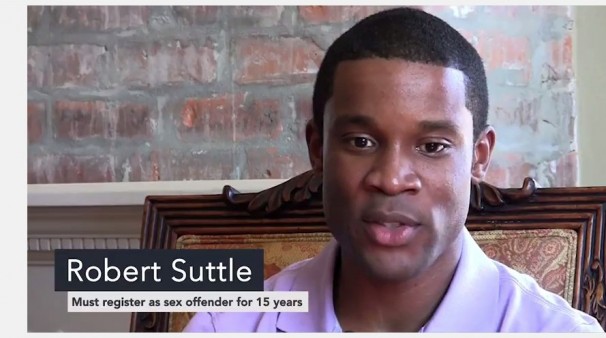To coincide with both World AIDS Day on December 1 and the unveiling of its newly revamped website, the anti-HIV-criminalization group The Sero Project has announced the release of its new short film, HIV Criminalization: Masking Fear and Discrimination.
Sero Project executive director and POZ founding editor Sean Strub enlisted filmmaker Christopher King and HIV writer Mark S. King to direct and produce the documentary, respectively.
The film features interviews with advocates and legal experts who explain how the unique stigmatization of HIV vis-à-vis other diseases is to blame for statutes that criminalize having sex while HIV positive and not disclosing. These statutes also greatly enhance punishments for misdemeanors like spitting when committed by people living with HIV. Such laws have resulted in the prosecution of individuals even when their viral load was undetectable and no transmission has occurred.
And it’s the interviews with some of those prosecuted individuals that are the heart of the film and help drive home the unjust and immoral nature of these laws. Consider the case of Edward Casto, of Washington state, who was born with HIV and served 31 months in prison for not disclosing during sex—even though he is undetectable and did not transmit the virus. As Casto puts it: “HIV is something I cannot change, yet because I have it my rights are less than others.” There’s also the case of Robert Suttle, who served jail time after someone with whom he’d been in a casual relationship followed through with a threat to press charges against him for not disclosing his status. Since completing a six-month sentence in 2011, Suttle had to register as a sex offender for 15 years—the words are even printed on his Louisiana driver’s license in bold, red letters.
As noted in the 11-minute documentary, HIV criminalization laws first started springing up in the 1980s and early 1990s when little was known about how the virus was transmitted and before effective antiretroviral treatment became available. As such, the laws are based on outdated science. Moreover, these laws criminalize the virus at the expense of public health, since codifying stigma discourages people from getting tested and discovering that they’re HIV positive; the idea is that if you don’t know your status then you don’t have to worry about getting arrested for having sex—no matter the circumstances.
As a primer for HIV criminalization, which Strub calls “the defining moral issue of our time,” the film is moving and informative. In honor of World AIDS Day, watch it below and check out the new Sero site where you’ll find a state-by-state guide on criminalization, plus resources for people with HIV concerned about prosecution.








Comments
Comments